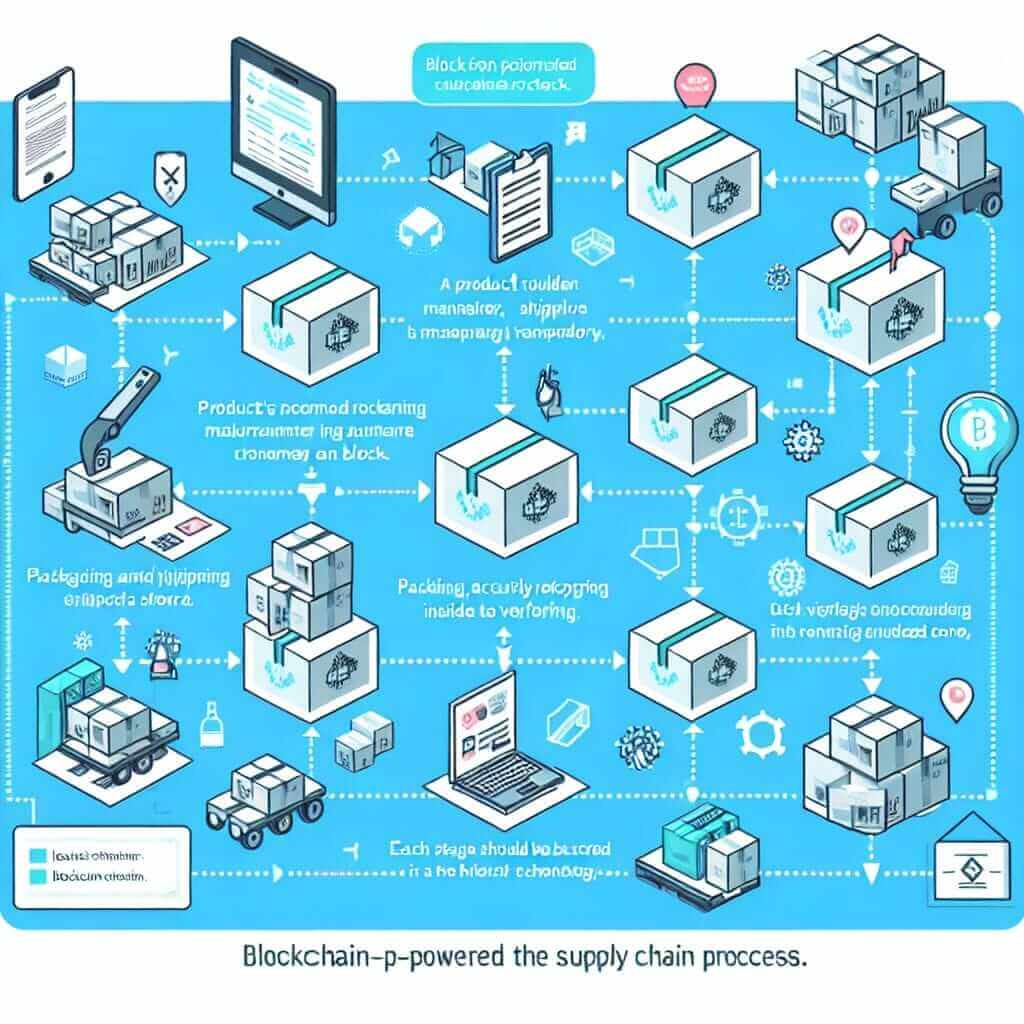In the IELTS Reading test, candidates often encounter passages that cover contemporary and high-impact topics. One such topic that has gained significant traction in recent years is blockchain technology and its application in various fields. Blockchain’s relevance to international trade has been highlighted in numerous articles, making it a potential topic for the IELTS Reading passage. This article will provide a comprehensive practice reading passage based on “How is blockchain technology being used in international trade?”, along with questions and detailed answers.
Main Content
Practice Reading Passage
Blockchain and International Trade
Blockchain technology, best known for its role in cryptocurrencies like Bitcoin, has found widespread applications in various sectors, including international trade. The core concept of blockchain is a decentralized digital ledger that records transactions across multiple computers, ensuring that the recorded transactions cannot be altered retroactively. This inherent transparency and security have made blockchain an attractive proposition for international trade.
The traditional international trade process involves numerous intermediaries and paperwork, leading to inefficiencies and delays. By integrating blockchain technology, trade transactions can be streamlined and executed with greater speed and accuracy. For instance, blockchain can facilitate real-time tracking of shipments and documentation, reducing the chances of fraud and errors.

One of the most promising applications of blockchain in international trade is in the realm of smart contracts. These are self-executing contracts with the terms of the agreement directly written into code. Smart contracts eliminate the need for intermediaries and automatically enforce the contract terms once predefined conditions are met. This can greatly enhance the efficiency and reliability of trade agreements.
Moreover, blockchain technology can play a crucial role in enhancing the transparency and traceability of supply chains. Consumers and regulators increasingly demand visibility into the origins and journey of products. Blockchain provides a tamper-proof record of a product’s path from the manufacturer to the consumer, ensuring authenticity and adherence to regulatory standards.
However, the adoption of blockchain technology in international trade is not without challenges. The integration requires significant investment in technology and a rethinking of existing processes. There is also the need for widespread regulatory acceptance and standardization. Despite these hurdles, pilot projects and early implementations have demonstrated the potential for blockchain to revolutionize global trade.
Practice Questions
True/False/Not Given
- Blockchain technology primarily records transactions across a single computer.
- The integration of blockchain can reduce fraud in international trade.
- Smart contracts require intermediaries for execution.
- Blockchain can provide a record of a product’s journey from manufacturer to consumer.
- The adoption of blockchain in international trade is smooth and without any challenges.
Multiple Choice
-
What is a blockchain?
- a) A centralized digital ledger
- b) A decentralized digital ledger
- c) An intermediary in trade processes
- d) A type of cryptocurrency
-
Which feature of blockchain can enhance the transparency of supply chains?
- a) Speed of transactions
- b) Real-time tracking
- c) Tamper-proof record
- d) Cost efficiency
Matching Information
8-10. Match the following statements (A-C) with the corresponding features mentioned in the passage (1-3). Write the correct number in the boxes provided.
A. Enhances the efficiency and reliability of trade agreements.
B. Requires significant investment in technology.
C. Ensures authenticity and adherence to standards.
- Smart Contracts
- Blockchain Integration Challenges
- Supply Chain Transparency
Answers and Explanations
True/False/Not Given
- False – Blockchain technology records transactions across multiple computers.
- True – Blockchain can facilitate real-time tracking of shipments and documentation, reducing fraud.
- False – Smart contracts eliminate the need for intermediaries.
- True – Blockchain provides a tamper-proof record of a product’s path from manufacturer to consumer.
- Not Given – The passage acknowledges challenges but does not state that adoption is smooth.
Multiple Choice
- b) A decentralized digital ledger
- c) Tamper-proof record
Matching Information
- A – 1. Smart Contracts
- B – 2. Blockchain Integration Challenges
- C – 3. Supply Chain Transparency
Common Mistakes
- Misinterpreting technical terms: Understand the definitions and contexts of terms like “smart contracts” and “decentralized ledger.”
- Ignoring details: Pay close attention to specific phrases, such as “reducing” vs. “eliminating” fraud.
- Skipping complex sentences: Thoroughly read and breakdown long sentences to grasp the full meaning.
Vocabulary
- Intermediary (noun): /ˌɪntərˈmiːdiˌɛri/ – A person or organization that acts as a link between multiple parties to facilitate an agreement.
- Traceability (noun): /treɪˈsɪbɪlɪti/ – The capability to follow the path or history of an item through a supply chain.
- Adherence (noun): /ədˈhɪərəns/ – Firm attachment to a policy, plan, or rule.
Grammar
- Passive Voice: Used to emphasize actions and results rather than the subject performing the action.
- “Blockchain provides a tamper-proof record” (Focuses on the result that blockchain offers, rather than blockchain itself.)
- Conditionals: Useful for discussing hypothetical scenarios.
- “If predefined conditions are met, smart contracts will automatically enforce the terms.”
Recommendations
To excel in the IELTS Reading test:
- Practice regularly: Regularly engage with practice passages on diverse topics.
- Expand vocabulary: Build a strong vocabulary base related to current affairs and technology.
- Improve comprehension: Focus on understanding the main arguments and key details in passages.
- Practice different question types: Familiarize yourself with various types of questions to increase your agility during the test.
Prepare diligently, stay updated with contemporary issues, and apply these strategies to reach your desired IELTS score. Happy studying!